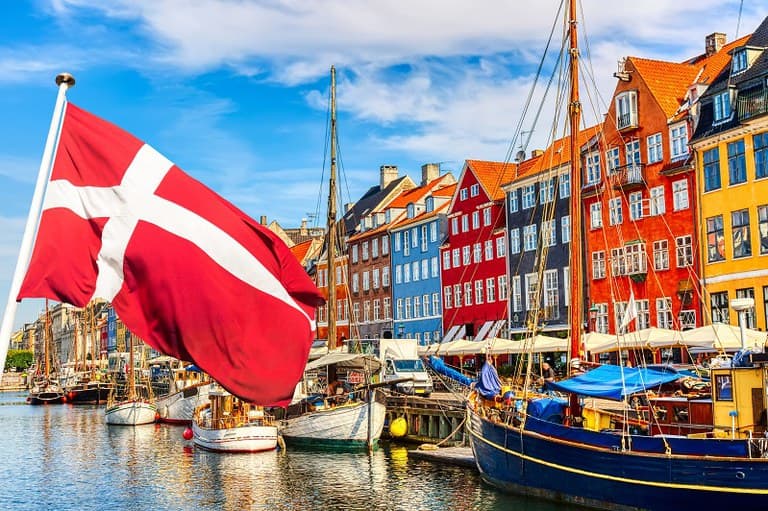
Assoc. Prof. Alexander B. Ratkov, PhD
Industrial Microbiology & Bioprocess Engineering, ROMB OOD (Sofia, Bulgaria)
From laboratory strains to 25,000-ton production plants: microbial amino-acid technologies that scale.
Alexander Ratkov is a Bulgarian industrial microbiologist specializing in fermentation kinetics, microbial amino-acid synthesis, and bioprocess optimization. Over five decades, he has authored 120+ papers, co-authored 3 patents, and led 40+ projects. His microbial technologies for L-lysine, L-valine, and L-leucine have been industrially implemented in Denmark, South Africa, and Russia. He continues applied R&D and consulting with ROMB OOD in Sofia.
About
Biography
Alexander Ratkov studied Biology at Sofia University and devoted his career to the Institute of Microbiology at the Bulgarian Academy of Sciences—rising from Research Associate (1972) to Senior Research Associate and Associate Professor (1987–2020). Since 2020 he collaborates with ROMB OOD, continuing applied research and technology transfer.
Areas of Expertise
- ✓Fermentation kinetics and process optimization
- ✓Microbial amino-acid synthesis (L-lysine, L-valine, L-leucine, L-tryptophan)
- ✓Bioprocess modeling and scale-up
- ✓Non-GMO strain development (mutagenesis/selection)
- ✓Technology transfer and licensing
International Collaborations
- •Japan (Osaka Univ.)
- •Netherlands (TNO, AVEBE, Gist-Brocades)
- •Germany (Evonik, Amino GmbH)
- •Italy (Snaprogety Biotech)
- •South Africa (CSIR, SA Bioproducts)
- •Denmark (Agroferm/Vitalys)
- •Russia (Aminosib)
- •Latvia (Latvian Academy of Sciences)
Professional Service
- •Member: FEMS, IMACS, Union of Scientists in Bulgaria
- •Editorial boards: Biotechnology & Biotechnological Equipment
- •Editorial boards: BioAutomation
- •Editorial boards: IJBCA (Ontario)
Research & Technologies
Technologies focus on non-GMO Corynebacterium glutamicum producer strains and robust fed-batch fermentations (with optional droppings) to achieve high titers, yields, and productivities.
L-Lysine
- •Strain: Corynebacterium glutamicum (registered, stable)
- •Titer: ≥150 g/L (up to 200 g/L with droppings)
- •Yield: 0.45–0.47 g/g sugars
- •Productivity: ≥3.5 g/L/h
- •Industrial production: Denmark, South Africa, Russia
L-Valine
- •Strain: C. glutamicum B-023 (NBIMCC 2467)
- •Titer: ≥60 g/L (up to 80 g/L)
- •Yield: 0.25–0.27 g/g sugars
- •Co-products: L-alanine, L-lysine, L-glutamic acid, L-leucine
L-Leucine
- •Strain: C. glutamicum B-018 (NBIMCC 2461)
- •Titer: ≥30 g/L (up to 50 g/L)
- •Yield: 0.12–0.15 g/g sugars
Complex Amino-Acid Products
Valine-dominant, lysine/threonine-dominant, and leucine-dominant mixtures demonstrated at lab and pilot scale for feed/food applications.
How It Works
We use beneficial, non-GMO microorganisms to convert sugars and nutrients into amino acids. By precisely controlling the fermentation environment, we produce targeted amino acids efficiently and sustainably.
Industrial Implementations

Denmark — Agroferm / Vitalys (Esbjerg)
Feed-grade L-lysine sulphate technology at ~10–12k t/y, operating successfully for over a decade.

South Africa — SA Bioproducts (Durban)
Crystalline L-lysine·HCl on high-test molasses and local corn steep liquor (~10k t/y for 12+ years).

Russia — Aminosib (Ishim, Tyumen)
L-lysine sulphate on wheat starch/glucose hydrolysate and wheat-bran hydrolysate (>25k t/y capacity).
Data Highlights
| Parameter | L-Lysine | L-Valine | L-Leucine |
|---|---|---|---|
| Typical fermentation time | 60–70 h | 60–65 h | 70–75 h |
| Titer (g/L) | 150–200 | 60–80 | 30–50 |
| Yield (g/g substrate) | 0.45 | 0.26 | 0.14 |
| Productivity (g/L/h) | 3.5 | 1.5 | 1.1 |
Aggregated, anonymized demonstration of stable, high-yield, non-GMO amino-acid fermentations validated across three continents.
Laboratory & Capabilities
Equipment
- •Three Applikon fermenters with process control and data logging
- •O₂/CO₂ off-gas analysis
- •HPLC and glucose analyzers
- •Spectrophotometer, dry-matter analyzer, pH meters
Methods
- •Fed-batch and long fed-batch with droppings; continuous cultures
- •Mass-balance analytics and kinetic modeling
- •Non-GMO strain optimization and scale-up
Publications & Teaching
- ✓120+ peer-reviewed papers and book chapters
- ✓50+ conference presentations
- ✓Honorary Lecturer: Technical University of Sofia (1991–2012)
- ✓Lecturer: Faculty of Biology, Sofia University (since 1991)
- ✓Supervised 20+ diploma theses; 2 PhD dissertations
Featured Publications
Modelling of Ion Exchange Step of L-Lysine Purification Process
A.B. Ratkov, M. Zlateva, Modelling of Ion Exchange Step of L-Lysine Purification Process, Bioprocess Engineering, 2015.
A mathematical model for ion-exchange purification of L-lysine was developed and validated, optimizing industrial recovery yields.
View PublicationAn Approach for Mathematical Modelling of Fed-Batch Process for L-Lysine Production
A.B. Ratkov, An Approach for Mathematical Modelling of Fed-Batch Process for L-Lysine Production, Biotechnology Reports, 2014.
Proposes a kinetic model describing fed-batch L-lysine fermentation, enabling better process control and scalability.
View PublicationOne Approach for Dynamic L-Lysine Modelling of Repeated Fed-Batch Fermentation
A.B. Ratkov, One Approach for Dynamic L-lysine Modelling of Repeated Fed-batch Fermentation, Biochemical Engineering Journal, 2010.
Develops a dynamic system model for repeated fed-batch L-lysine fermentation, capturing process stability and substrate efficiency.
View Publication